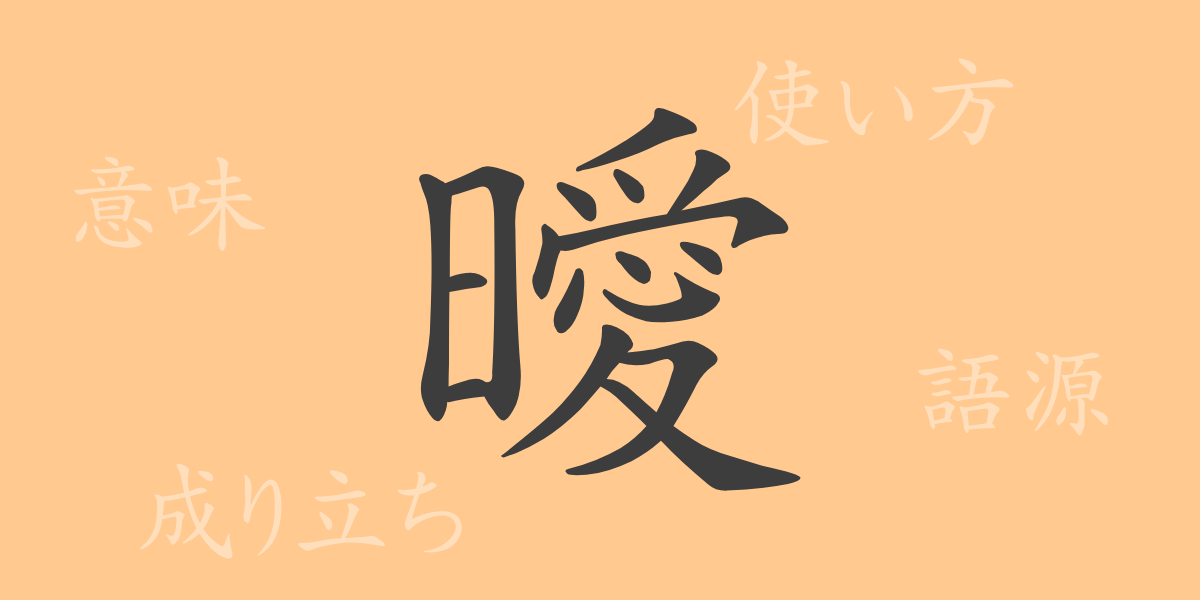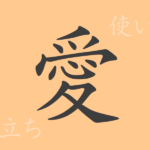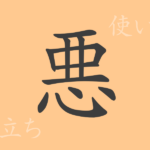“
The richness of the Japanese language is reflected in its complex character system, with Kanji holding particularly profound meanings, essential for understanding Japanese culture and language. This article focuses on the Kanji ‘曖’ (Ai), which, although infrequently used, has an intriguing background. We will explore its origins, meanings, usage, and related phrases and idioms in depth.
Origins of 曖 (Ai)
The Kanji ‘曖’ (Ai) originated in ancient China and has a highly symbolic creation. It is a combination of ‘明’ (Akarui, bright) and ‘愛’ (Ai, love), originally conveying the idea of ‘bright love.’ However, its meaning evolved over time and it became commonly used in terms such as ‘曖昧’ (Aimai, ambiguous).
Meaning and Usage of 曖 (Ai)
The primary meanings of ‘曖’ (Ai) include ‘unclear’ and ‘vague.’ In modern Japanese, it frequently appears in forms like ‘曖昧’ (Aimai, ambiguous) or ‘曖昧さ’ (Aimai-sa, ambiguity). These terms are typically used to describe situations that are not clear or attitudes that are indistinct.
Readings, Stroke Count, and Radical of 曖 (Ai)
The Kanji ‘曖’ (Ai) has several notable features:
- Readings: On’yomi ‘Ai’, there are no common Kun’yomi.
- Stroke Count: ‘曖’ (Ai) consists of 17 strokes.
- Radical: The radical of ‘曖’ is ‘日’ (Hi, sun/day).
Phrases and Idioms Using 曖 (Ai) and Their Meanings
There are several idioms and phrases that include ‘曖’ (Ai):
- 曖昧 (Aimai): Unclear, vague.
- 曖昧模糊 (Aimai moko): A four-character idiom expressing extreme vagueness.
These terms are commonly used in everyday conversation and business contexts, useful when demanding clarity from someone or describing uncertainties in situations.
Summary of 曖 (Ai)
While infrequently used, the Kanji ‘曖’ (Ai) plays a crucial role in expanding the expressive capabilities of the Japanese language. As a vital vocabulary for describing ambiguous situations and as a character that evokes the culture and history behind the words, ‘曖’ (Ai) subtly enriches our linguistic life. This article hopefully deepens your understanding of the profound meanings and uses of ‘曖’ (Ai).
“

























